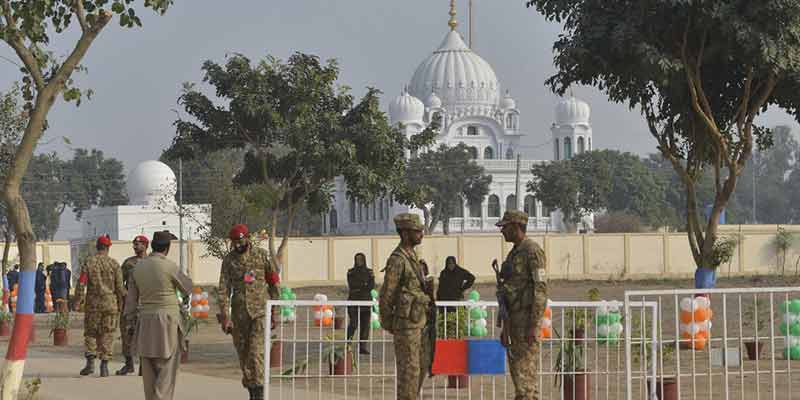- India
- Oct 24
Kartarpur pilgrimage registration starts
Online registration of devotees began on October 24 after India and Pakistan signed an agreement to operationalise the Kartarpur corridor to allow Sikh pilgrims to visit the holy Darbar Sahib in that country.
The move came after India signed an agreement with Pakistan on the modalities for operationalisation of the Kartarpur corridor at zero point on the international boundary.
The pilgrims will have to register themselves online on the portal and exercise their choice to travel on any day.
Pilgrims will be informed by SMS and email of the confirmation of registration 3-4 days in advance of the date of travel. An Electronic Travel Authorisation will also be generated.
The pilgrims need to carry the Electronic Travel Authorisation, along with their passport, when they arrive at the passenger terminal building.
The Kartarpur corridor will connect the Dera Baba Nanak shrine in Punjab with Darbar Sahib in Narowal district of Pakistan’s Punjab province.
As per the agreement, India will send the list of pilgrims to Pakistan 10 days ahead of the travel date. Confirmation will be sent to pilgrims four days before the travel date.
The Pakistan side has assured India of making sufficient provision for ‘langar’ and distribution of ‘prasad’.
Indian pilgrims of all faiths and persons of Indian origin can use the corridor and the travel will be visa-free. Pilgrims need to carry only a valid passport while persons of Indian origin need to carry Overseas Citizen of India card along with the passport of their country.
The Kartarpur corridor will be open from dawn to dusk. Pilgrims travelling in the morning will have to return on the same day and the corridor will be operational throughout the year, except on notified days, to be informed in advance.
Pilgrims will have a choice to visit as individuals or in groups, and also to travel on foot.
The main issue that has been a point of discussion was the insistence of Pakistan to levy $20 as service charge per pilgrim per visit.
India has consistently urged Pakistan to not levy any fee on the pilgrims and it was stressed time and again, including in the previous three joint secretary-level meetings and at the diplomatic level, that this is not in consonance with the religious and spiritual sentiments of Indian pilgrims.
India has shared its deep disappointment with Pakistan for its refusal to waive the fee. However, in the interest of the pilgrims and timely operationalisation of the Kartarpur Sahib Corridor before the 550th Prakash Purb, India has agreed to sign the agreement.
While the agreement has been signed, India continues to take up this issue with the Pakistan government to reconsider its insistence on levying the fee. India remains ready to amend the agreement accordingly.
India continues to pursue the issue of all-weather connectivity through the corridor and in this context, the Indian government has built the bridge on Indian side and a temporary service road as an interim arrangement.
A robust security architecture has been put in place while facilitating smooth and easy passage of pilgrims.
Sri Guru Nanak Dev, the founder of Sikhism, had spent more than 18 years of his life at the gurdwara Kartarpur, located on the banks of the river Ravi.
A state-of-the-art passenger terminal with facilitation centre to host government officials responsible for ensuring hassle-free travel of pilgrims, food kiosks, parking areas and security points will also come up by November 8 when Prime Minister Narendra Modi will formally inaugurate the much-awaited Kartarpur corridor.
The Union Cabinet passed a resolution on November 22 to celebrate the historic occasion of the 550th birth anniversary of Sri Guru Nanak Devji in a grand and befitting manner throughout the country and across the globe.
The foundation stone for the Kartarpur corridor was laid in Punjab’s Gurdaspur district by Vice President M. Venkaiah Naidu in November last year.

